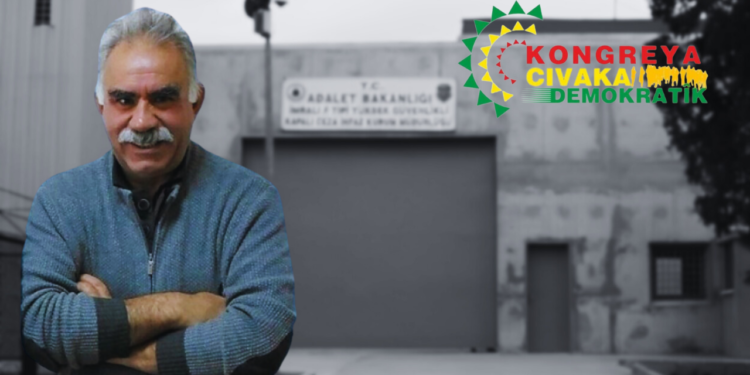The Democratic Society Congress (DTK) accused Turkey of violating its own laws and international regulations by implementing isolation on PKK leader Abdullah Öcalan. The organisation argued that the isolation not only undermined Öcalan’s influence but also hindered efforts for a resolution to the Kurdish conflict.

The Democratic Society Congress (DTK), a pro-Kurdish non-governmental organisation advocating for the implementation of democratic confederalism in Turkish politics, has accused Turkey of violating both its own laws and international law by imposing absolute isolation on the leader of the Kurdistan Workers’ Party (PKK), Abdullah Öcalan, and the three other prisoners been held in incommunicado detention for 28 months at the İmralı Island Prison.
DTK stated that Turkey’s implementation of this isolation system also demonstrated the significance of Öcalan’s influence on society. “The fascist government, which has built its policy on Kurdish hostility, aims to hinder resolution and peace efforts through isolation,” said the organisation.
DTK emphasised the need to open the doors of Imrali in order to pave the way for an end to the Kurdish conflict in Turkey. The organisation called on international human rights organisations to fulfil their responsibilities against isolation and demonstrate a clear stance.
Meanwhile, the arrest of TELE1’s chief editor Merdan Yanardağ following his criticism during a broadcast of the isolation imposed on Öcalan, has sparked ongoing debate. Asrın Law Office called on Turkish authorities to comply with the precautionary measures of the UN Human Rights Committee and put an end to the isolation in İmralı.
Regarding the legal investigation against Yanardağ for his criticism, Asrın Law Office said, “The real issue to be investigated is the İmrali isolation system and its implementers.” The law office said that Abdullah Öcalan’s legal right to meet with his family and lawyers has been unlawfully obstructed.
The isolation imposed on Abdullah Öcalan has been a topic of concern and criticism for many years, with human rights organisations and activists calling for an end to his isolation and the protection of his basic rights.








Leave A Comment